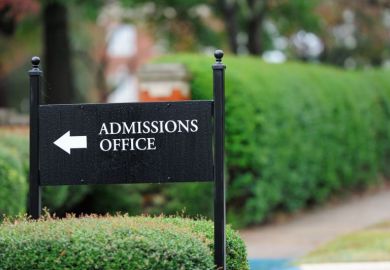Nearly 600,000 students applied to university this year as applications for full-time undergraduate courses rose by 2 per cent, new figures show.
Some 592,290 people applied to a higher education course by the main 15 January deadline compared with 580,000 at the same point last year, according to the admissions body Ucas.
The number of UK applicants rose by 1 per cent, while applications from the European Union increased by 7 per cent. There was a 3 per cent rise in applications from non-EU students.
More students from poorer families are also applying to university, with 21 per cent of students from the most disadvantaged backgrounds applying compared with 18 per cent in 2010.
The record figures were welcomed by business secretary Vince Cable as evidence that £9,000 tuition fees had not deterred poorer students from entering higher education.
“There were many who said that the reform of student finance would discourage young people from going to university,” said Mr Cable on a visit to Kingston University.
“The opposite has occurred; numbers have grown, in particular those from disadvantaged backgrounds.”
Universities and science minister Greg Clark agreed, saying “reforms are helping more people than ever go to university”.
“Today’s record figures show that people understand the value of higher education – helping them on the path to a rewarding and successful career,” he said.
The latest Ucas data show that the gulf in male and female students is set to widen, with 90,000 more women applying than men.
London has also seen the largest increase in demand, with 44 per cent of 18-year-olds now applying.
Sir Peter Lampl, chairman of the Sutton Trust, welcomed the continued growth in applicants from poorer families but said there was still “a significant gap, particularly to the most selective universities, and a worrying dip this year in mature applicants”.
“The decline in mature applicants comes after recent data confirmed a big drop in part-timers since the fees increase: mature and part-time students are almost 40 per cent of all students and their decline is a blow to efforts to increase our low level of social mobility,” he said.
He also raised concerns over “a widening gender gap”, which has been growing since the fees hike and which is particularly worrying for white, working-class boys.
Mike Boxall, higher education expert at PA Consulting Group, also warned that the record application numbers disguised a more complex recruitment picture faced by universities.
“There is a risk that university leaders are misreading the implications of Ucas application statistics,” he said.
“University leaders bullishly investing in academic buildings and facilities are wrong to assume that demand for higher education will remain buoyant,” he said.
“Although applications have indeed grown 2 to 3 per cent in each of the past three years, fewer students are actually taking up places and starting university each year,” he added in reference to falling numbers of part-time students.
Demand is also not evenly distributed, with a fifth of providers experiencing growth of 10 per cent or more since 2012, while more than a quarter of providers are seeing enrolments fall by 10 to 20 per cent, he said.
Register to continue
Why register?
- Registration is free and only takes a moment
- Once registered, you can read 3 articles a month
- Sign up for our newsletter
Subscribe
Or subscribe for unlimited access to:
- Unlimited access to news, views, insights & reviews
- Digital editions
- Digital access to THE’s university and college rankings analysis
Already registered or a current subscriber? Login




